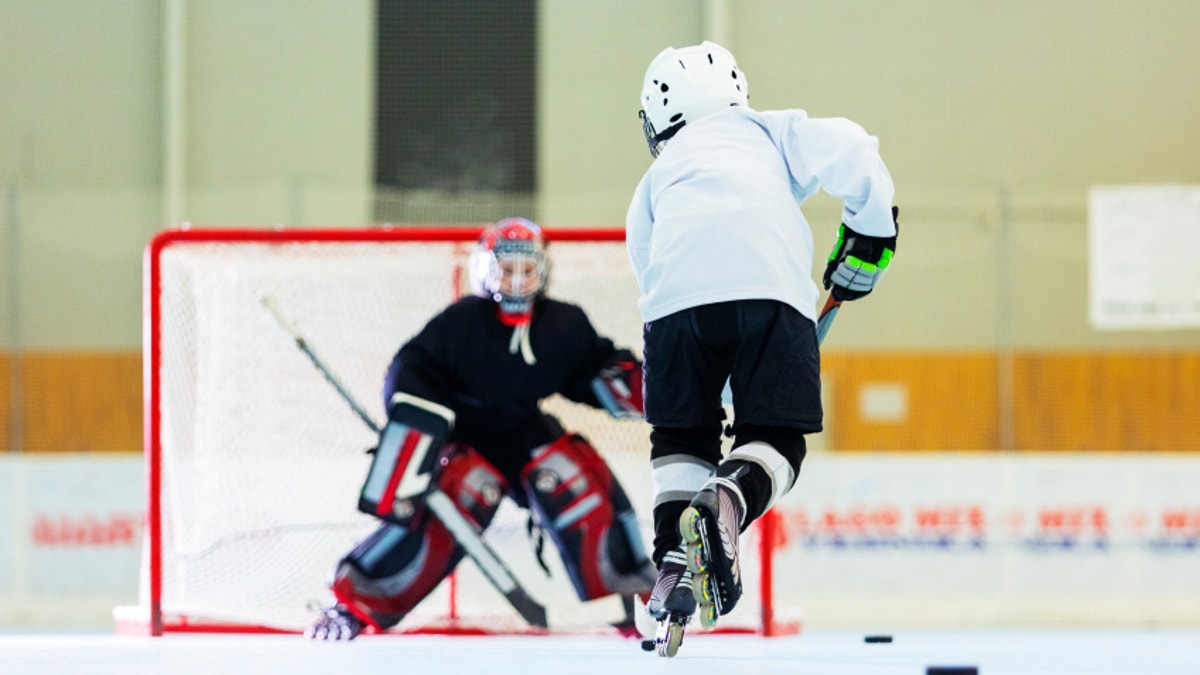
(Matjaz Slanic)
Young teens who play hockey may feel pressure from their teammates, parents, and coaches to deny their concussion symptoms, putting them at serious risk for re-injury, according to a recent study.
Sports are a major source of concussions in teens, and experts agree that players should not return to sports while still experiencing concussion symptoms, the researchers write in the Clinical Journal of Sports Medicine.
Players who do return to sports before fully healing from concussions can suffer serious consequences and possible death from even minor subsequent head injuries, the researchers write.
"Teenage hockey players often do not report their concussion," said lead author Dr. Michael Cusimano, a neurosurgeon at St. Michael's Hospital in Toronto.
There are a variety of reasons for this, with players often influenced by parents, coaches and their peers, Cusimano told Reuters Health by email.
He and his colleagues conducted one-on-one interviews with 38 youth hockey players and 23 other people who might have an influence on the way the young players behave, such as parents and coaches.
They found that players and others often did not fully understand the health risks of concussions, and people rarely mentioned the possibility of disability or death.
Many players and coaches did not recognize the symptoms of concussion and some players were unsure if they had gotten a concussion in the past.
In addition, about half of parents, coaches, and trainers allowed players to return to the ice immediately after a head injury without seeking medical attention.
There was also a "hero" culture, with teammates, parents, and coaches encouraging players to be "tough." In this culture, players who were injured too often might be viewed as "wimps," the authors say.
Players also mentioned pressure from coaches who want to win at all costs as a motivator not to report injuries or symptoms.
Both players and coaches also experienced pressure from parents, who may view hockey not just for fun, but as a potential profession for their child.
One third of interviewed parents reported witnessing coaches or other parents put pressure on players to perform.
Players were also motivated not to report symptoms because they did not want to miss games, and this was particularly true for larger players. Many interviewees believed that larger players were at lower risk for injury and could safely return to play more quickly.
Participants from hockey leagues that did not allow body checking tended to report fewer concussions on their teams than leagues that allowed full body contact.
Stefan Duma, a professor at Virginia Tech in Blacksburg, Virginia who studies sport-related head injuries, noted by email that underreporting is an issue in all sports. He said risks run high without proper rest after an injury.
"The vast majority of concussions resolve within 7 to 10 days without long-term consequences; however, there is strong concern about having an athlete continue to play while injured," said Duma, who was not involved in the study.
Cusimano said that while there are guidelines for when youth should return to sports after an injury, this study suggests that these rules are not enough to prevent kids from returning too early.
"Our findings strongly support the need for . . . mandatory education of players, parents, and coaches to improve awareness and recognition of concussion," Cusimano advised.
"Coaches and parents need to have serious discussions about this topic with their young athletes to make sure they know the importance and need for rest and recovery," Duma added.








































